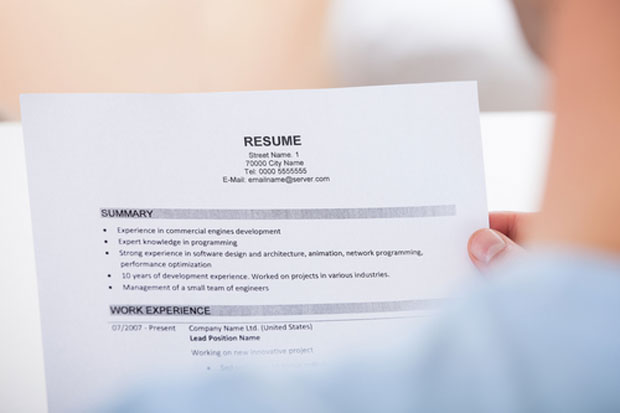Does your heart beat a little faster at the thought of writing your medical writer CV or resume? You’re not alone.
There’s a lot of pressure when you’re applying for a writing job. You need to highlight your essential skills. You have to make sure you address the key selection criteria. And, of course, you must demonstrate why you’re the best person for the role.
However, and most importantly, your CV or resume and writing samples need to be, well, as close to perfect as possible.
Even one small typo could be enough for a hiring manager or editor to chuck your CV or resume in the ‘no’ pile.
Speaking of CVs and resumes, what’s the difference?
Well, some people use the terms CV and resume interchangeably. For others, these terms have different requirements.
Here’s a useful overview of the differences between CVs and resumes.
Avoiding common medical writer CV mistakes
I’ve written a few medical writing CVs and resumes over the years. (And, I’ve been offered medical writer jobs with global publishing companies as well as health and medical businesses).
However, I’ve been on the other side of the coin, too. I’ve recruited health and medical writers in both contract and employed roles. Having read good and bad medical writer CVs and resumes, I have also recruited freelance medical writers, editorial assistants and digital content strategists.
And, I have to say, there are many common CV, resume and cover letter errors and mistakes that medical writers make.
I’ve collated a list of the 10 easiest steps you can take to ensure your medical writer CV or resume is professional, high quality and eye-catching.
Use the tips in this list to give yourself the best possible chance of securing an interview.
10 easy ways to create an impressive medical writer CV
Sell yourself as best you can when you send off your health and medical writing applications.
1. Keep your medical writer CV succinct
Recruiters are reading dozens of resumes at a time, and if yours is number 54 in a pile, chances are they’re only scanning it to find the most relevant content. Keep your CV or resume short and succinct.
2. Include your contact details
Ensure you have included ALL your key contact details including home and mobile phone numbers, email addresses and website URLs.
3. Include a link to your LinkedIn profile and website
Including a link to your online web and social links helps the recruiter or employer to find out more detail about you and ideally read some professional, relevant recommendations as well.
On that note, remember that employers will look at your social media accounts. So, make sure anything you don’t want an employer to see is hidden from public view.
4. Include a sample of medical writing work that’s specifically related to the job you’re applying for
Why wait to be offered an interview before you show how good your medical writing skills are?
Include at least one relevant writing sample – more if possible.
Also, pay attention to detail. If you’re applying for a job that involves writing for health professionals, for example, showcase previous examples of writing for this audience.
2024 Health Writing Template Package
Save time and create better health content, faster with my new and improved health writing templates!

- Medical News Article Templates
- Health Feature Article Templates
- Health Blog Post Templates
- Article Pitching Template
- Health Blog Post Template
- Health Topic Template
- Medication Topic Template
- Procedures and Treatments Template
- Social Media Templates
- Health Copywriting Project Templates
- Medical Writer CV Templates
Get instant access to all 30+ templates in the package. Download the editable templates and keep them forever!
5. List your most relevant medical writing jobs, skills and experience
Your CV should be tailored to the job you’re applying for. Yes, this takes a long time as you need to edit your CV for every job. But the results are worth it.
It’s great that you worked at McDonald’s when you were 15. However, recruiters don’t need to know this level of detail. Some recruiters recommend only listing jobs you held in the previous decade.
At the same time, focus on your most relevant health writing experience and medical writing skills.
If you have relevant medical writing training, list this, too – but list other forms of training selectively.
Remember: only include your specific experience, skills and training if it is relevant to the job you’re applying for.
6. Describe your key medical writing tasks in your CV, in bullet points
Recruiters who are scanning your content will appreciate a medical writer CV with bullet points.
Lists are easy to scan and read in a hurry.
Ensure the tasks showcase not only your medical writing skills but also your key attributes. Think your ability to work both autonomously and in a team, project management skills and organisational skills.
7. Include a career goal that relates to the medical writer job you’re applying for
A clearly defined career goal helps to set the scene for where you’re at in life. Your goals show potential employers your aims and objectives for your medical writing career.
8. Pay attention to formatting
A well-formatted CV can make a great impression.
Likewise, a medical writer CV with inconsistent formatting and poor fonts can actually harm your chances of getting an interview.
9. Get someone else to proofread your CV
We all make typos, but there’s nothing more damaging than a writing CV with obvious grammatical errors! Likewise, it can be difficult to assess your writing for errors when you’re under pressure.
Get a friend, family member or fellow writer to proofread your CV so you can be sure it’s as close to perfect as possible.
10. Include reference details
Include the phone and email of at least one key contact as opposed to writing “References available upon request”.
Including the details without being prompted shows you have nothing to hide and are happy to get started immediately.
Aim to include references who can specifically vouch for your medical writing skills.
Bonus tip! Use results-driven language
Don’t just write about your experience – write about the results you achieved in your previous roles.
For example, did you write content that generated thousands of views?
Did you play a role in helping hundreds of customers improve their health?
Did you grow subscribers by 300%? Focus on results, not just skills and attributes.
Over to you
Do you struggle to write your medical writer CV or resume?

